Becoming a new mom brings countless joys, but it can also bring new challenges, including changes in your hair. Greasy hair postpartum might be a new reality for you, but don’t worry – we’ve got your back! In this blog post, we’ll explore the causes of oily hair after childbirth and offer effective strategies to manage this common issue.
We’ll discuss the role of hormonal changes, vitamin deficiencies, and diet in postpartum hair care. We’ll also provide practical tips, home remedies, and advice on using dry shampoo and nutritional supplements to keep your hair looking fabulous. So let’s get started on your journey to healthy, beautiful hair postpartum!
Key Takeaways
Unlock the secrets to managing greasy hair postpartum with hormonal balance, essential vitamins & minerals and a balanced diet.
Choose mild shampoos, adjust your washing routine and use conditioner correctly for beautiful locks.
Treat your tresses naturally with home remedies like baking soda or ACV, dry shampoo or nutritional supplements for healthy postpartum hair!
Understanding Greasy Hair Postpartum: Causes and Effects

Many new moms experience oily hair after childbirth, which can be a frustrating and confusing issue to tackle. But don’t fret! The root causes of postpartum oily hair lie in hormonal changes, vitamin deficiencies, and diet. Understanding these factors enables you to take effective steps to manage your hair post-pregnancy.
Initially, we should evaluate how hormonal changes, vitamin deficiencies, and diet impact postpartum hair, contributing to excess oil production and greasiness. Let’s get to the bottom of your postpartum hair concerns and identify the solutions you need!
Hormonal Changes and Their Impact on Hair
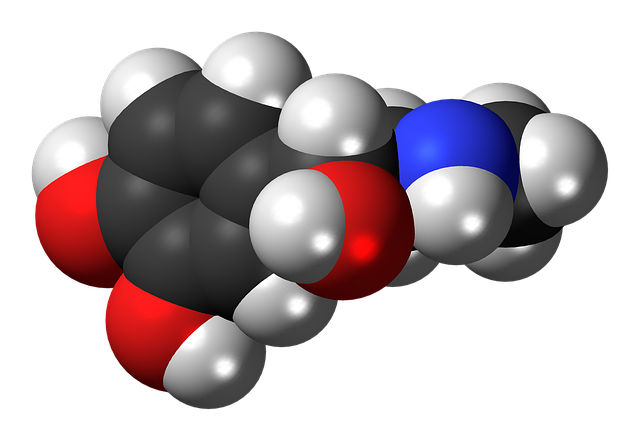
Brace yourself for a journey through the intriguing interplay of hormones like testosterone and estrogen, and their impact on those sebaceous glands nestled in your scalp.
Picture this: hormonal changes, especially the surge in androgens like testosterone, act as the conductors orchestrating a grand production in your scalp. These androgens send a signal to your sebaceous glands, prompting them to ramp up oil production. Suddenly, your hair finds itself in an oil overload, irrespective of whether it’s naturally dry, curly, or somewhere in between.
Ah, but let’s not forget about estrogen, another player in this hormonal symphony. Alongside testosterone, estrogen dances into the scene, influencing the oil production game. These hormonal fluctuations aren’t just a brief intermission; they often play out for about 6 to 8 months post-pregnancy.
But take heart! Despite this oily interlude, your hair’s tale doesn’t end here. As time marches on, these hormonal fluctuations settle down, gradually bringing your hair back to its pre-pregnancy harmony. Yes, that’s right – there’s a light at the end of the greasy hair tunnel!
So, while your hair might feel like it’s on a rollercoaster ride of oiliness right now, rest assured that this is just a temporary chapter in your hair’s story. Embrace those hormones as they work their magic, knowing that your hair will soon reclaim its natural balance. Until then, a bit of patience and some extra care will see you through this oily adventure!
Vitamin Deficiencies and Hair Health
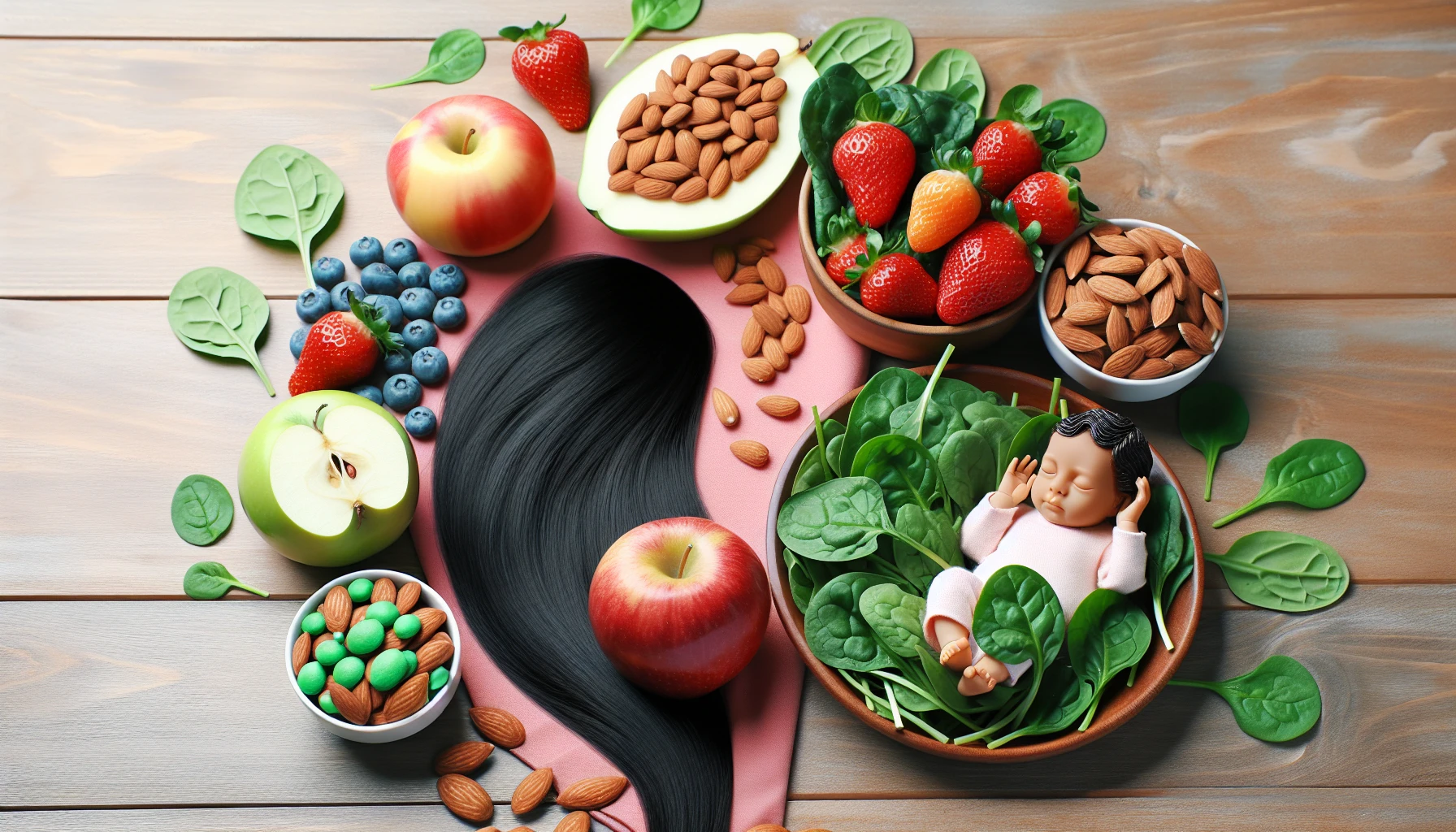
Vitamin deficiencies, especially B vitamins, can have a significant impact on hair health after giving birth. A deficiency of B vitamins in the body can have an impact on sebum production. This can lead to excessive oiliness in both skin and hair. That’s why addressing any vitamin deficiencies you may have postpartum is of utmost importance.
To keep your hair and scalp healthy, consider taking B vitamin supplements, which can help regulate sebum production and prevent overproduction of oil. Baby Blues Postpartum hair vitamin, for example, is packed with essential B-vitamins, collagen, vitamin A, C, and zinc + folate, plus other minerals and vitamins perfect for hair health, growth, and strength.
The Role of Diet in Postpartum Hair Care

Maintaining a healthy diet is key in preserving hair health and managing greasy hair after pregnancy. Ensuring that your body gets the necessary nutrients can help reduce inflammation, replenish vitamins, and regulate oil production. Hydration is also key for postpartum hair health – drinking plenty of water can help keep your hair from becoming dry, brittle, and prone to breakage.
Incorporate nutrient-rich foods into your diet, such as:
lean meats
leafy green vegetables
dairy products
beans
eggs
This will help manage greasy hair postpartum. A balanced diet and proper hydration will not only improve your hair health but also contribute to your overall well-being as a new mom.
Practical Tips for Managing Greasy Hair Postpartum
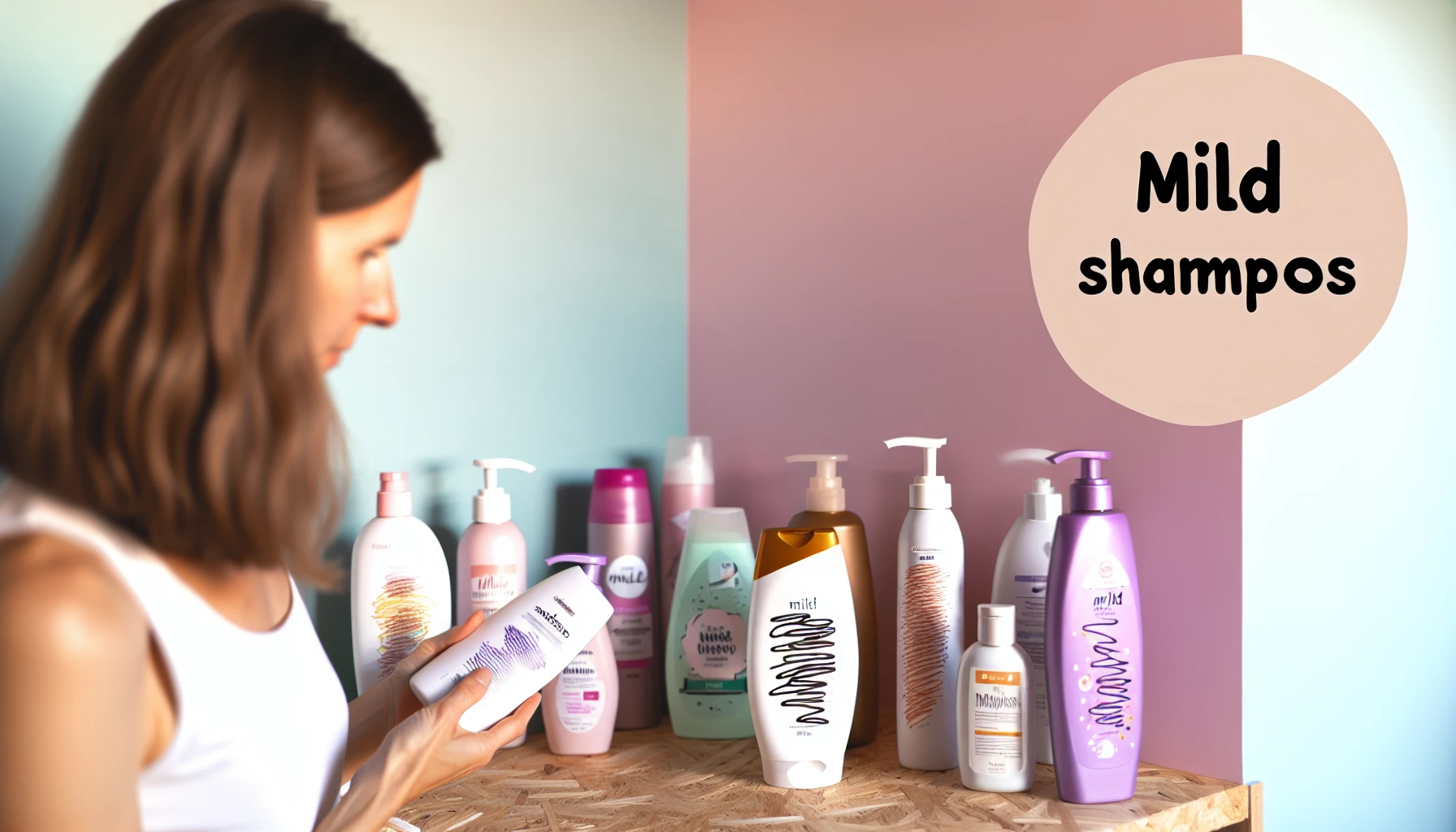
Having examined the causes of greasy hair postpartum, we should now focus on some practical tips for effective management of greasy postpartum hair. Choosing the right shampoo, adjusting your hair washing routine, and using conditioner properly can make a huge difference in how your hair looks and feels.
We will scrutinize these strategies in detail and offer recommendations to assist you in finding the best products and routines for your specific needs. So, let’s get your hair back on track and looking fabulous!
Choosing the Right Shampoo
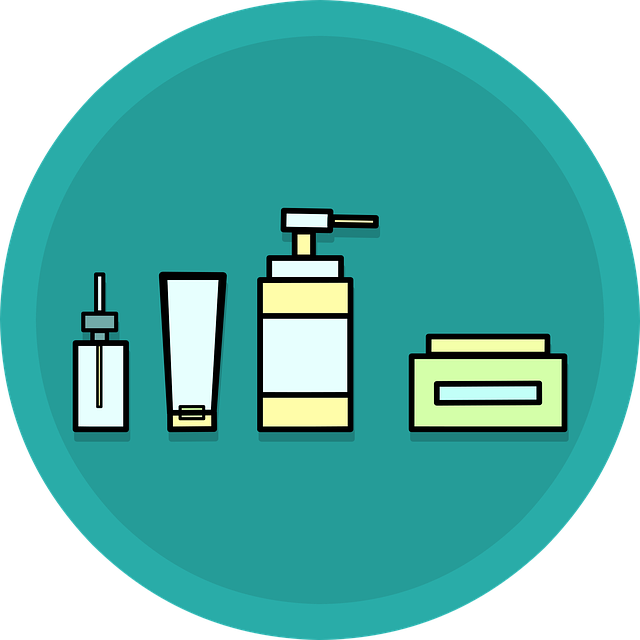
Choosing a mild shampoo is key for managing greasy hair postpartum. Mild shampoos cleanse the scalp and hair without removing natural oils, helping to balance oil production and decrease greasiness. They’re also gentle on the scalp, reducing the chance of irritation or dryness.
Some recommended mild shampoo brands for postpartum greasy hair include:
Briogeo Be Gentle, Be Kind Aloe + Oat Milk Shampoo
Living Proof PHD Triple Detox Shampoo
T/Sal Therapeutic Shampoo
REDKEN Scalp Relief Shampoo
OGX Apple Cider Vinegar Shampoo
Kérastase Chronologiste Shampoo
PURA D’OR Anti-Thinning Biotin Shampoo & Conditioner Set
These shampoos contain ingredients like witch hazel, salicylic acid, aloe vera, tea tree oil, and lightweight hydrators that regulate oil production without drying out your hair or causing irritation.
Adjusting Your Hair Washing Routine
Another key step to managing oily scalp after pregnancy is altering your hair washing frequency. The ideal frequency for washing hair postpartum depends on your hair type and use of hair care products, but generally, washing every 1-2 days for oily hair and at least once a week for dry hair is recommended.
Over-washing hair can strip the scalp of its natural oils, leading to increased oil production and greasiness. Keep this in mind when adjusting your hair washing routine to maintain a healthy balance. In between washes, consider using dry shampoo or baby powder to keep your hair looking fresh and oil-free.
Proper Use of Conditioner
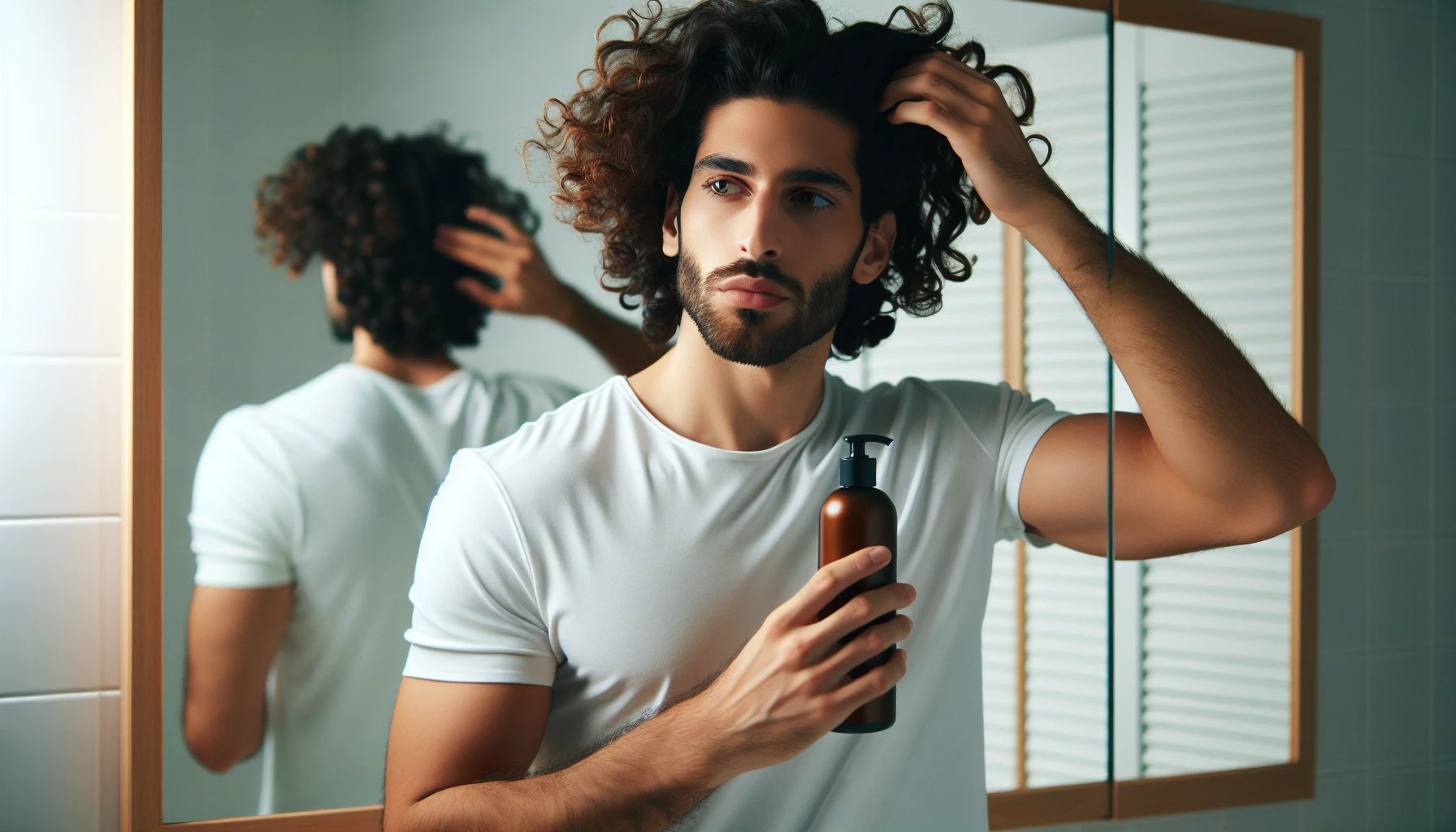
Using conditioner properly can also help manage greasy hair postpartum. Here are some tips:
Apply conditioner sparingly.
Focus on the ends of your hair to prevent product buildup and excess oil.
This will ensure that your hair remains healthy and voluminous without weighing it down.
Some conditioners are specifically designed to cater to different hair types and colors, offering you the best possible results. Experiment with various conditioners to find the one that works best for your hair and helps you achieve a healthy, grease-free mane.
Additional Remedies for Greasy Hair Postpartum
If you continue to struggle with greasy hair postpartum, there are further remedies you can try out. Home remedies, dry shampoo, and nutritional supplements can all help you manage your hair and make it look and feel its best. Let’s explore these options and find the perfect solution for you!
There are numerous ways to tackle greasy hair postpartum, from simple home remedies such as baking soda and apple cider vinegar to handy dry shampoos and nourishing nutritional supplements. Let’s delve into these remedies and discover the secret to beautiful, healthy hair!
Home Remedies: Baking Soda and Apple Cider Vinegar
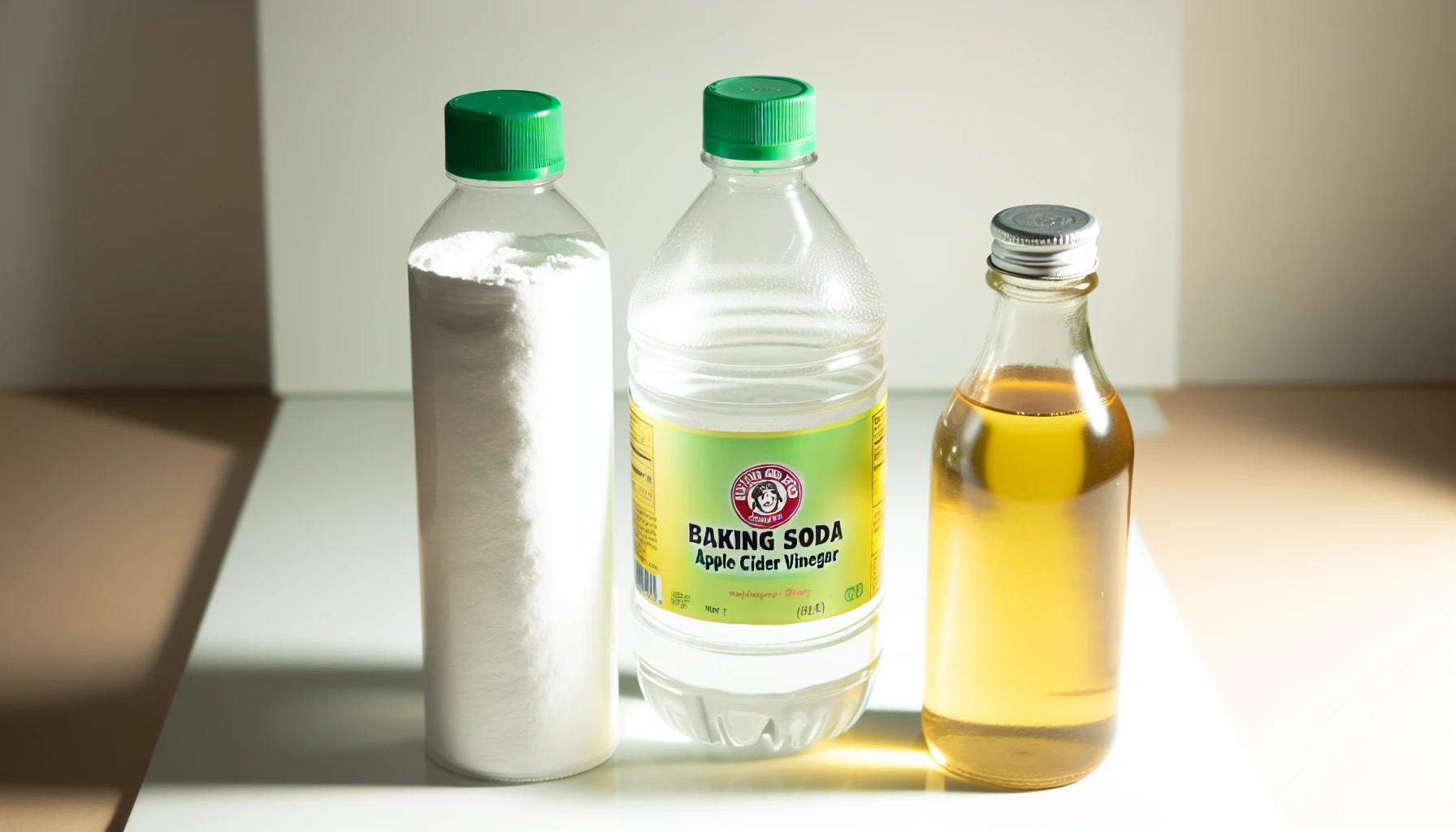
Baking soda and apple cider vinegar are fantastic home remedies for removing excess oil and product buildup from hair. Shampoo and baking soda help strip away buildup, leaving your hair clean, shiny, and soft. The ideal ratio for a greasy hair rinse is 1-2 teaspoons of baking soda per cup of water.
Apple cider vinegar offers remarkable benefits for hair health, such as:
Stimulating a healthy scalp
Balancing pH
Protecting hair color
Adding volume
Supplying nutrients to strengthen hair
Whether you’re a fan of natural remedies or prefer store-bought solutions, these home remedies can help you manage greasy hair postpartum and keep your hair looking fabulous!
Dry Shampoo: A Quick Fix

Dry shampoo is a convenient solution for freshening up hair and absorbing excess oil between washes. It works by effectively absorbing excess oil and dirt from the scalp, leaving your hair looking refreshed and less greasy. To use dry shampoo, simply spray it onto the roots of your hair, massage it into your scalp, and then brush it out. For optimal results, use dry shampoo no more than once or twice a week to avoid buildup.
Dry shampoos come in various formulations, with some specifically designed for different hair types and colors. Look for ingredients such as:
cornstarch
baking soda
cocoa powder
arrowroot powder
glycerin
tapioca starch
kaolin clay
witch hazel
rice starch
To ensure you’re getting the best results for your straight hair type.
Nutritional Supplements and Diet Changes
Nutritional supplements and a balanced diet can help address vitamin deficiencies and improve hair health. Some key vitamins and minerals that can help reduce greasy hair postpartum include:
Omega-3 fatty acids
B vitamins (especially B6)
Iron
Zinc
Vitamins A, C, D, and E
Adding these nutrients to your diet can promote healthier hair and reduce greasiness.
Incorporating the following into your diet can help manage greasy hair and promote overall health:
Healthy fats
Lean meats
Leafy green vegetables
Dairy products
Beans
Eggs
By making dietary changes and taking nutritional supplements, you can tackle greasy hair postpartum from within and enjoy healthy, beautiful hair.
Addressing Other Postpartum Hair Concerns
Beyond greasy hair, many new moms also encounter other postpartum hair issues, including hair loss. It’s essential to be aware of these issues and learn how to address them effectively. In the following part, we will talk about:
Postpartum hair loss
Causes of postpartum hair loss
Coping strategies for postpartum hair loss
Frequently asked questions related to postpartum hair care and issues
Understanding the causes and solutions for various postpartum hair issues, such as hair loss and greasiness, will help you take control of your hair health during this challenging time. With the right strategies and a little patience, you can enjoy beautiful, healthy hair throughout your postpartum journey.
Postpartum Hair Loss: Causes and Coping Strategies
Postpartum hair loss, mainly caused by hormonal changes and imbalances, is a common issue experienced by new moms. This excessive shedding is a normal and expected symptom that occurs a few months after giving birth. By understanding the causes of postpartum hair loss, you can take the necessary steps to manage and prevent it.
Typically, postpartum hair loss begins a few months after delivery, around three months, and can last up to six months. Recovery is usually swift and can occur within six to 24 weeks, but in rare cases, it can take up to a year. By addressing the hormonal changes and other factors contributing to hair loss, you can regain your normal hair growth and enjoy healthy, beautiful hair postpartum.
Summary
In conclusion, greasy hair postpartum is a common issue faced by many new moms, but with proper care and patience, you can manage it effectively. By understanding the causes, such as hormonal changes, vitamin deficiencies, and diet, and implementing practical tips, home remedies, and nutritional supplements, you can enjoy healthy, beautiful hair throughout your postpartum journey. Embrace this new phase of life with confidence and let your hair shine!
Frequently Asked Questions
Can pregnancy hormones make your hair greasy?
It is possible for pregnancy hormones to cause greasy hair, as a result of increased sebum production which acts as a natural moisturiser. To help manage this, it is important to wash the hair often with a mild shampoo and avoid using conditioner after shampooing.
Why is my hair more oily after pregnancy?
During pregnancy, hormone levels can fluctuate resulting in increased sebum production, which can make hair appear oily. If you’re still experiencing this after childbirth, consider using specialized shampoos to help reduce oiliness.
How often should you wash your hair during postpartum hair loss?
Reduce hair washing to a minimum and use natural hair care products to help reduce postpartum hair loss.
How do I manage my postpartum hair?
Manage postpartum hair loss by eating a balanced diet, being gentle with your hair, trying out different haircuts, using volumizing shampoo and conditioners formulated for fine hair, and avoiding heavy conditioning shampoos. Make sure to take care of your hair and you should see it start growing back soon.
What are the potential causes of postpartum hair loss?
Postpartum hair loss can be caused by hormonal changes, vitamin deficiencies, and dietary changes. Taking the necessary steps to prevent it is possible by understanding these potential causes.

